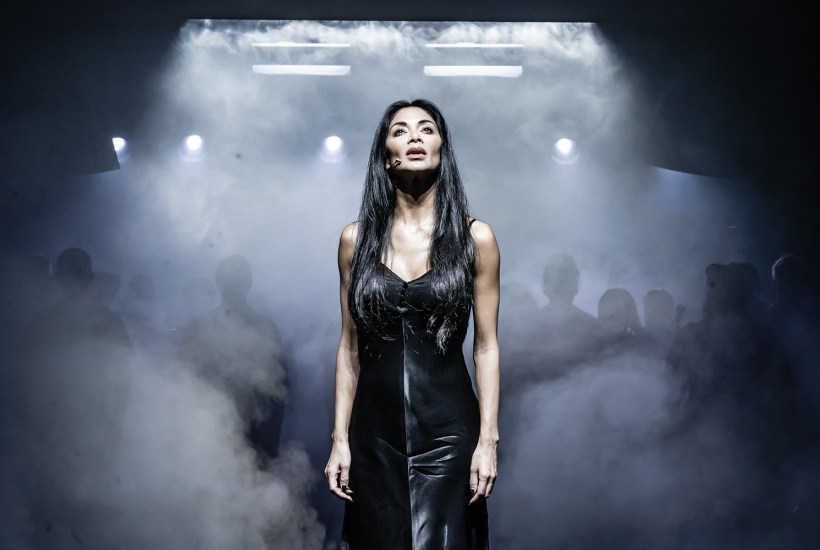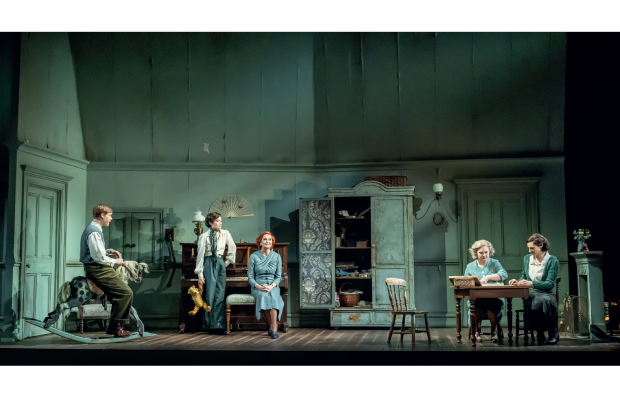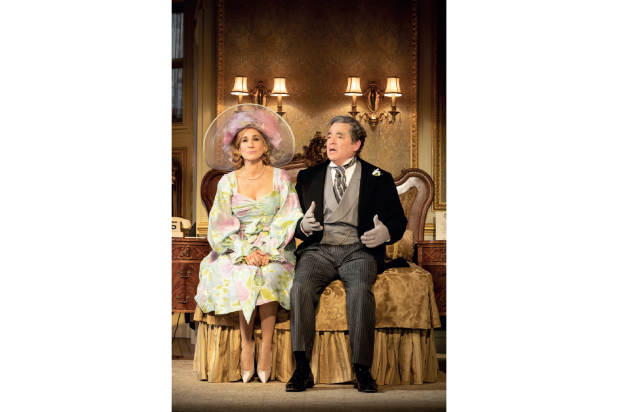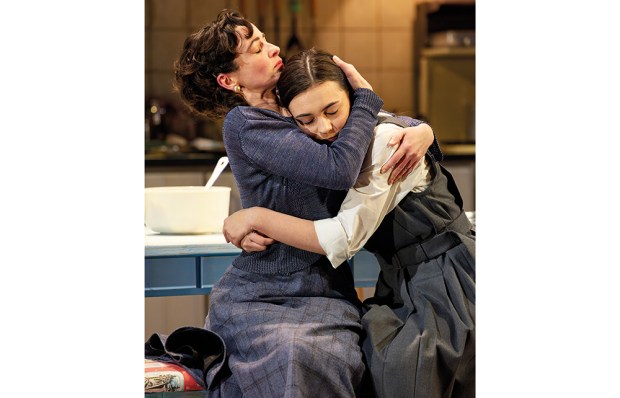Sunset Boulevard is a re-telling of the Oedipus story set in the cut-throat world of Hollywood. Pick a side in this tortured yarn. There’s Norma, a burned-out sex-goddess, who wants to make a comeback as a teenage ballerina in a dance epic. Or there’s Joe, a penniless scribbler, who becomes Norma’s reluctant toyboy while he works on her doomed screenplay (which stands for a stillborn child).
Clinging to Joe is Betty, a drippy girlfriend who represents escape and artistic integrity. The final piece in the jigsaw is Norma’s discarded husband, Max, who stands for sadistic and destructive obsession. Each day he sends Norma a new batch of counterfeit love letters from non-existent fans.
Every character behaves either badly or madly. And the success of the narrative rests entirely on Norma’s looks. If she’s elderly, the story is tragic. If she’s youthful, the story is neither here nor there. Nicole Scherzinger is a striking beauty who dances superbly and has an epic singing voice. So why won’t Hollywood hire her? She’s nuts, obviously, but then a great movie star is bound to be tricky on set. And actors these days are still busy in their ninth decade so Norma’s rejection at the age of 40 seems inexplicable.
Director Jamie Lloyd handles this depressing tale with a palette of boot-polish black. There are no attractive costumes or lavish furnishings to enjoy. In fact, no set or props at all. The stage looks like an abandoned Oxford Street kiosk littered with odd bits of stage gear. And the actors are dressed in baggy Primark casuals. Norma wears a night-dress but no shoes. Max, her weird husband, has purchased a dark tunic from Oxfam but he can’t afford to shave. The chorus line are decked out in loose-fitting sports gear so they look like Amazon staff prancing about during their lunch break. The bartenders at the venue are better dressed than the cast of this show.
One final and fatal assault has been launched on our pleasure. The action is filmed on stage as it happens and the raw footage is projected onto a huge screen that forms the rear-wall of the playing area. This tiresome device confuses the eye. Should we watch the performers or the flickering pictures behind them? And the big-screen close-ups are very unforgiving. Norma is handsome enough to survive. Max (David Thaxton) looks feverish and has flecks of dewy perspiration twinkling on his three-day stubble. Can Norma not give him a shaving-kit for Christmas? Andrew Lloyd Webber’s soaring James Bond music works well enough and there are some sweet romantic tunes to hum along to. Overall the show feels like a Gothic opera staged in an underground car park during a blackout.
Vanya is Andrew Scott’s attempt to stage a classic family drama as a solo piece. His version updates and reconfigures significant parts of the original. He enters the stage as Dr Astrov dressed in rock star togs, or perhaps trying to resemble a Florida gigolo, in a silk shirt, dark shades and a gold medallion. Quite a bumpy start. He then morphs into Uncle Vanya and the new character is indicated by an electronic speaker that delivers wolf whistles. Very crude. These changes move us a long way from Chekhov’s script which examines lost youth and frustrated romance. Scott’s zingier new version looks at a romantic rivalry between two men in their forties, Astrov and Vanya, who compete for the favours of an unattainable beauty, Yelena (renamed Helena).
Scott performs the show in his native Irish accent and he has a lot of fun mimicking the gossipy female servants. He makes a decent fist of Alexander, the crotchety professor with a disabling limp. But Alexander is no longer a dusty academic but a washed-up filmmaker who hasn’t had a hit movie in 17 years. Vanya, who always wanted to copy Alexander, is also a wannabe film director and he makes the bizarre claim that he might have been the next Robert Bresson. That’s a very strange boast from a man who farms vegetables for a living. Never mind.
Not everything fits. The better you know the play the easier you’ll grasp this production: the fraught emotional scenes between Sonia and Helena are particularly hard to disentangle unless you’re aware what’s going on. The story climaxes with two gunshots which Scott turns into a great comic set piece. And the closing scene, famous for its poignant reflections on the futility of existence, comes across very well. It’s pure poetry, really, and by the end the show ceases to be a monologue at all.
Somehow, miraculously, you feel a whole tribe of personalities has been cavorting and capering through your mind for two hours. A crazy experiment but it works. Scott must be tempted to surpass himself with his next solo effort. Beowulf on roller-stakes, perhaps.
Got something to add? Join the discussion and comment below.
Get 10 issues for just $10
Subscribe to The Spectator Australia today for the next 10 magazine issues, plus full online access, for just $10.
You might disagree with half of it, but you’ll enjoy reading all of it. Try your first month for free, then just $2 a week for the remainder of your first year.














Comments
Don't miss out
Join the conversation with other Spectator Australia readers. Subscribe to leave a comment.
SUBSCRIBEAlready a subscriber? Log in